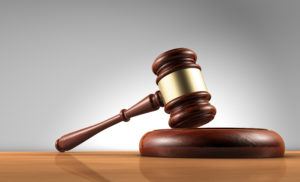
I’m a board certified trial lawyer. I’ve tried a lot of cases to judges and juries, and I can tell you most real trial lawyers, even those who are agnostic or atheist, would fully embrace the advice for judges that comes from the Bible.
As a trial lawyer, my job requires dealing with judges. But even if you are not a trial lawyer, you should be concerned about judges because judges are the dispensers of justice in our society.
If we do not have a good judges, we will not have justice, and justice is foundational not only to a healthy culture but to the kingdom of God. (Isaiah 9:7).
Fortunately, the Bible has clear and specific advice for judges. It is stated in Deuteronomy 16:18-20. There are three principle qualifications:
Judges must be impartial
The advice from the Bible is that Judges must be impartial. Deuteronomy 16:19. Judges must not distort (“stretch” or “bend”) justice based on their relationship to the attorneys or the parties appearing before them or based on the wealth or social standing of those parties.
Most non-lawyers probably think bias in favor of those with wealth or social status is the biggest problem when it comes to partiality, but it is not. The biggest partiality failing of elected judges, at least in civil court, is bias in favor of attorneys they know, who give money to their campaigns, or whose firms are financial supporters of the judge.
In federal court where judges are appointed, not elected, the biggest partiality failing is driven by politics or ideology. In the federal district where I have practiced, there were a few judges you knew would rule almost every time in favor of the company in an employment discrimination case. It was no secret.
Ideology can be as bias-inducing as financial support because it can impair a judge’s ability to call balls and strikes, which is what a judge is supposed to do. A judge who thinks there are too many employment laws protecting employees should rule the same way on a summary judgment motion or an evidentiary issue as a judge who thinks there are too few laws protecting employees. Far too often, that is not the case.
Judges must be ethical
Judges must be ethical. The second instruction is akin to the first: judges must be bribe-proof; they must have integrity.
“You shall not distort justice; you shall not be partial, and you shall not take a bribe, for a bribe blinds the eyes of the wise and perverts the words of the righteous.
Deuteronomy 16:19 (NASB)
“[Y]ou shall not take a bribe.” That’s clear enough, but perhaps anticipating some judges may believe they are smart enough that they can take bribes and still do justice, this verse tags on the reminder, “for a bribe blinds the eyes of the wise and perverts the words of the righteous.” To distort something means to twist or change it from its original or intended shape. That is what a bribe does.
Judges must do justice
Lastly—and this gets to the substance of what they do—judges must do justice and only justice; they must judge with righteous (or “right”) judgment. Deuteronomy 16:18, 20.
“Justice, and only justice, you shall pursue, that you may live and possess the land which the Lord your God is giving you.”
Deuteronomy 16:20. (NASB)
In other words, judges should be excellent in dispensing justice. This means they must study the law, read what the parties put in front of them, study the evidence, and rule according to the law. Trial lawyers quickly learn who the judges are who work hard and read the briefing submitted by the parties before a hearing. Few things are worse for the trial lawyer than the judge who shows up for a heavily briefed motion hearing and says, “So, what’s this case about?”
Doing “only justice” for a judge also means doing one’s job “sincerely.” Colossians 3:22. It means not doing judge work because you want the respect that comes with the robe, or because you want to advance a political ideology from the bench, or for the money. It means judging because you want to be a means by which God executes justice on the earth.
How we should choose judges
The advice the Bible provides for judges, by inference, provides us with guidance on how we should choose our judges. What is disheartening to me is that in our country we do not choose judges based primarily on these three qualifications. Instead, we want to know a judge’s political ideology. In any system involving humans you get what you reward. We reward judicial ideology, whether it be on the left or the right, by making judges’ political beliefs the litmus test for their fitness to judge. It shouldn’t surprise us then that our judiciary has become politicized.
When I show up in court this week for the hearing I have scheduled, I don’t want to appear in front of a Republican, a Democrat, or a Libertarian. I want to appear in front of a judge who is impartial, ethical, and who will rightly and excellently dispense justice. Most trial lawyers would tell you the same thing, and in affirming this they would be implicitly acknowledging that the Great Judge knows something about judging. GS

